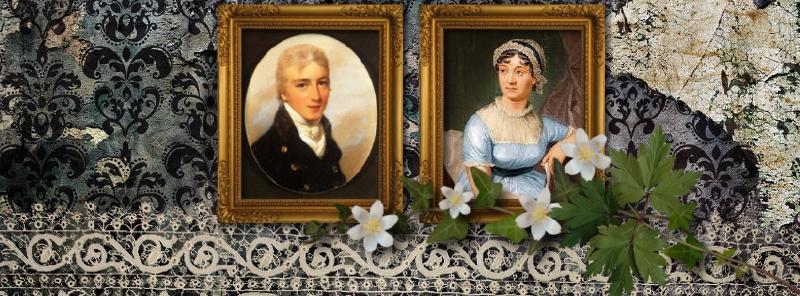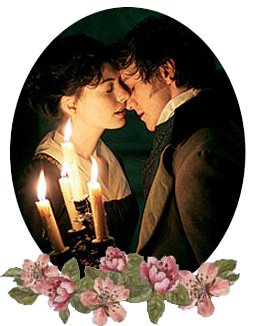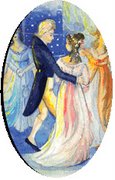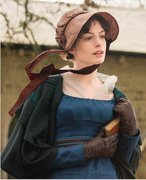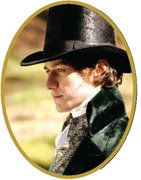Once upon a “Bad Tuesday”

This is something I’ve started a while ago after reading Ellen Moody’s calendars. Like her I was trying to find patterns in Jane’s books, just that I was looking for them hoping to make the connection with Tom Lefroy –the dates and events that matched those from Jane’s surviving letters written in the years she met and ‘flirt’ with her “Irish friend”.
As per one of her articles, “A Startling Pattern: Bad Tuesday”, Tuesday seems to be “repeatedly a pivotal day in Austen's novels, a day on which some embarrassing or mortifying incident or series of incidents occurs (at a ball, a change of home) which sets off an important change in the plot.”
After reading Jane’s letters ‘between the lines’ and with the help of BJF JA/TL Timeline article, here’s my special calendar with all those pivotal Tuesdays I’ve found in her surviving letters.
 In Jane’s first 2 surviving letters, one day gets mentioned repeatedly which happens to be a Tuesday: January 19th 1796, and I believe this was the day Tom Lefroy returned to London, after their last ball at Ashe, during which Jane was also expecting an “offer” (one reason to believe that Jane was talking about an offer in marriage is her statement: “I mean to confine myself in future to Mr. Tom Lefroy” and that someone drew Tom’s picture for her):
In Jane’s first 2 surviving letters, one day gets mentioned repeatedly which happens to be a Tuesday: January 19th 1796, and I believe this was the day Tom Lefroy returned to London, after their last ball at Ashe, during which Jane was also expecting an “offer” (one reason to believe that Jane was talking about an offer in marriage is her statement: “I mean to confine myself in future to Mr. Tom Lefroy” and that someone drew Tom’s picture for her):1. On Sunday January 10 1796, Jane added few more lines to her 1st surviving letter which she started the day before. She talks about her cousins, the Coopers, but I believe this was more a sing of her disappointment in not having her sister home before Tom’s departure, and so not able to meet her “Irish friend”: “By not returning till the 19th you will exactly contrive to miss seeing the Coopers, which I suppose it is your wish to do.”
2. At the beginning of her 2nd surviving letter (January 14-16, 1796) Jane shows again disappointment in not having Cassandra coming home before Tom’s departure. She’s even telling her sister how little she cares about the ball that will be held when Tom is gone (I assume this one was on Friday like all previous balls): “I do not at all expect to see you on Tuesday, since matters have fallen out so unpleasantly; and if you are not able to return till after that day, it will hardly be possible for us to send for you before Saturday [January 23], though for my own part I care so little about the ball [January 22] that it would be no sacrifice to me to give it up for the sake of seeing you two days earlier.”

Another Tuesday I’ve discovered in her 1st surviving letter is the day she visited Mrs Lefroy at Ashe: January 5th, 1796.: “…he [Tom] is ashamed of coming to Steventon, and ran away when we called on Mrs. Lefroy a few days ago.” Most likely the visit took place after she sent her missing letter (January 2-4, 1796) and that’s the reason I think it was on Tuesday. By saying “few days ago” on Saturday morning, it means that more than 2 days passed since this visit.
This is matching again a Tuesday in P&P – the day when Miss Bingley writes to Jane inviting her for dinner at Netherfield Park. Probably the ball at Ashe has been confirmed, or announced during this visit (same as in P&P), after Jane sent her missing letter, and that’s the reason to have it communicated to Cassandra only on January 9th: “I can expose myself, however, only once more, because he leaves the country soon after next Friday [another reason to believe Tom’s departure probably took place onTuesday19th and explains Jane’s hopes to have her sister returning home till this date] , on which day we are to have a dance at Ashe after all.”

One more important Tuesday I’ve ‘picked’ from Jane’s letters is the day she spent in Cork Street –London, August (23) 1796, on the same street if not the same house, where Tom’s great-uncle Langlois lived. Although it can not be confirmed, I still believe this short letter and the missing one (25-29 August, 1796) sent from Rowling-Kent are related to Tom Lefroy. In the first letter we have from Kent, Jane apologizes for the length of her previous one “I am sorry that you found such a conciseness in the strains of my first letter” and promises to make amends for it when they will meet “by some elaborate details, which I shall shortly begin composing”. Jane sent 3 more letters to her sister before returning home, but none of them contained those secret details that I believe were referring to Tom Lefroy and her short visit in Cork Street. Most likely they’ve been communicated in person, as Jane mentioned, when she met Cassandra – an indication these details were not safe to be sent in a letter.
There are similar events in P&P and S&S: Jane Bennet is encouraged by her sister to go to London hoping she’ll meet Mr Bingley again, but instead she’ll send letters (the first one very short) filled with “elaborate details” about Miss Bingley’s plan to have her brother married to Georgiana Darcy: “an event which will secure the happiness of so many”. In S&S, the day Willoughby leaves his card, which Marianne sees when they come in form the morning's drive, it’s mentioned again to be a Tuesday -a week after their arrival in London. Also, the central traumatic moment wherein Willoughby humiliates Marianne at the ball is dated, as per Ellen’s calendar, on Tuesday January 16, 1798.

The last pivotal date for Jane and Tom’s story seems to be again a day when he returned to London after visiting Ashe, in November 1798. Most likely Tom’s departure was related to his brother’s “imprudent marriage” (November 5th, 1798 -reference JA/TL timeline) and probably it took place the day after the news reached them, on Tuesday 6th or Tuesday 13th –the day before Mrs Lefroy’s visit to Steventon (Wednesday November 14th).
This is again only an assumption but it just happens to be a very good match of a pivotal date in S&S: Tuesday November 7th, 1797 (as per Ellen Moody’s calendar) is the day when Willoughby has been sent away to London by his reach aunt. Between 6 and 7 November, Mrs. Smith had discovered Willoughby's affair with Miss Williams and demanded Willoughby marry her as price of her forbearance.
…and the link for a ‘matching video’ on YT: http://www.youtube.com/watch?v=0cYTRTOaW3k&feature=channel
All pictures belong to Mariana Gheorghe
